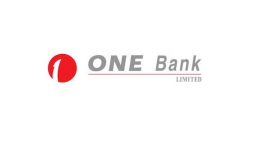Bangladesh needs to adapt, rejig system: IAF president

Bangladesh wants to be a top exporter – moving goods worth $100 billion by 2030 – but this ambition comes with the caveat of graduating from status of a least developed country, necessitating a rejig in the country's business model, Cem Atlan, president of the International Apparel Federation (IAF) has said.
In an interview with The Business Standard on the sidelines of the 37th IAF World Fashion Convention, Atlan said Bangladesh's biggest competitor is Vietnam, but their business model is different.
"Vietnam focuses on high volumes for the US market. If they don't change their model, they won't be able to compete with Bangladesh," he said.
According to him, the call of the hour is to invest in textiles and fabric production.
"Bangladesh needs to invest in raw materials, go for synthetic or recycling production. Fabric production is crucial, because relying on imports for those will mean the country won't be able to reach their $100 billion target," he said.
The president of the IAF, an international trade association whose membership includes national clothing associations and companies, suggested a concerted effort to reshape the prevailing systems in place and realign with the new global ambitions – carbon emissions in this case.
"Because of new drives for sustainability and the need to reduce carbon emissions, the world is steadily moving away from fast fashion. The fast fashion industry is going to slow down," Cem said.
In turn, Bangladesh, which is the biggest fast fashion supplier, will also see their demand shrink. People now want tailor-made, value-added garments, he added.
"In Turkey, we take orders for 500-1,000 pieces but we add embroidery print, incorporate different sewing techniques and value to the garment because we can't compete with Bangladesh on basic items. This was how it has been in Turkey in the last 10-15 years, when we made the switch to more value-added garments," Atlan said.
Bangladesh should also start going into this sort of area. Instead of making 20,000 pieces, you can now make 10,000, he added.
"Also, in Turkey, we don't take long-term business. Our lead time is also very short – from six to a maximum of eight weeks. We can repeat the business in two weeks. Everything is ready and we have our raw materials, accessories and fabrics prepared in advance," he observed.
Atlan said in this situation, smaller companies will not be able to compete with bigger ones, unless more value is added. But this also needs other things such as design back up. Digitalisation will make this easier.
"On digital platforms, you can design much better. One, however, needs the education for it, as well."
This is where the role of fashion institutes come into play. Bangladesh will need international teachers to show how designs are made for the US and Europe.
"You can use your own culture for high fashion but for the international market you need international design so you need international experts. Every factory should design their own collections. When customers come to the factory, you can show the collection – different embroidery, print techniques, washing technology. Customers can see what is there in Bangladesh and while they may always want changes to the design, you need to offer something [first]."
On carbon emissions, he said Bangladesh was doing great in terms of green production investments.
"This will be on top of everything. Brands had [earlier] asked about workers, working conditions, and now the focus is carbon emissions. In 2030, Europe will ask how much carbon emissions you have made. The US will also follow."
He said Europe was hoping to reach 55% carbon emissions by 2030 and zero by 2050. "So if you are over the limit, you will have to pay. It will make products more expensive."
Atlan, whose organisation has members from 40 countries, representing 150,000 companies with 22m workers, or 70% of the global apparel supply chain, also touched upon dispute resolution.
Saying the IAF's mission was to work as a bridge between manufacturers and brands, he highlighted how during the pandemic many brands cancelled orders, "left goods on road", or didn't pay for what they received, which caused a huge loss to the industry, especially Bangladeshi manufacturers.
"In our interviews with newspapers, we always mention these and when this comes out brands become a bit more responsible, because we make it public."
In the period ahead, Atlan said one of the most important things the IAF was working on was to standardise auditing rules, to avoid "audit fatigue."
On the challenges ahead, Atlan said no one knew what 2022 would hold, but the industry had to be united.
"People now have less money to spend. They don't buy clothing…it is the last thing. So, the first industry affected is clothing so recession expectation slowed business," he said.
"The world is a big enough market, so if we collaborate and be together we can become stronger. We are selling t-shirts which cost less than coffee…because of the competition between companies, they never say no to the customer. They have to learn how to say no to the customers," he said.
Atlan concluded by stating the obvious, but which isn't recognised. "Without retailers, manufacturers cannot survive. Without manufacturers, retailers cannot survive. So we want to bring them together. That is our cause."



 Keep updated, follow The Business Standard's Google news channel
Keep updated, follow The Business Standard's Google news channel
















